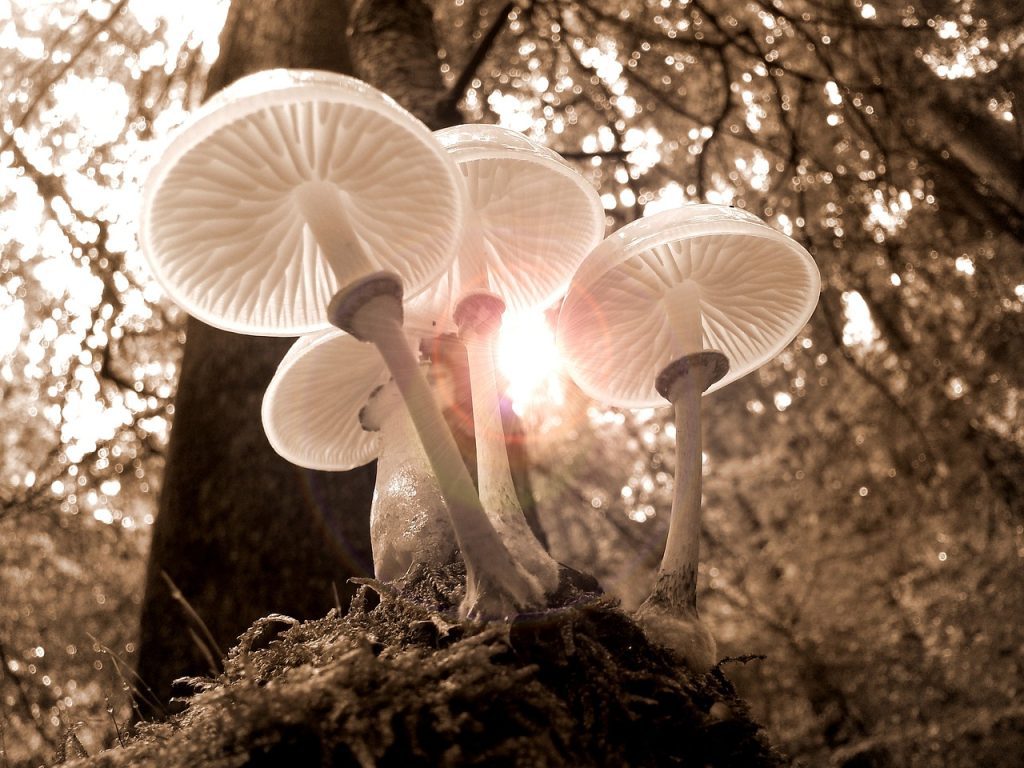
In the ever-evolving landscape of eco-friendly funerals, mushroom mycelium has emerged as a symbol of regeneration and environmental harmony. I know that when I first started my own research into natural burials, a company called Coeio, founded by Jae Rhim Lee, immediately caught my eye because of their mushroom burial suit.
Lee’s promise was that the suit would not only facilitate the decomposition of bodies but also clean toxins from them before they were able to leach out into the soil. However, after I investigated further, I was hugely disappointed to discover that the company no longer seems to be operating and their mushroom suit is no longer manufactured. This article therefore takes a brief look at Coeio’s innovation, but then moves on to discussing whether any new options using the power of mushrooms are now available.
The fungi-infused farewell
Coeio, a true trailblazer in the eco-friendly burial space, introduced the world to the concept of mushroom burial suits. Jae Rhim Lee, an artist as well as founder of the company, was inspired to design the suit out of her desire to take responsibility for her “own burden on the planet”, as she said in her 2011 TED talk. She established the Infinity Burial Project, and developed the “Infinity Mushroom”. An organic cotton suit was then seeded with these mushroom spores and other elements that would enable the decomposition of the deceased, as well as remediating toxins and delivering nutrients to plant roots. Lee referred to the suit as “ninja pajamas”, and it was both chic and environmentally responsible.
Coeio was then founded, and the mushroom burial suit received considerable publicity. Notably, in 2019, Luke Perry, known for his roles in iconic television series such as Beverley Hills 90210 and Riverdale, chose to be buried in one. His decision coincided with a growing awareness of environmentally conscious burial options, sparking interest and conversation around the transformative potential of mycelium.
A changing landscape
However, as mentioned earlier, despite the initial enthusiasm for Coeio’s mushroom suit, the company now no longer seems to be operational and their products are no longer available for purchase. But as one door closes, another opens …
A Dutch venture into natural burials
Loop Biotech, based in Delft, has taken up the mantle of innovation using mushroom mycelium. They commitment to sustainability is evident in their ability to actually grow biodegradable coffins and urns made from a blend of local mushrooms and upcycled hemp fibers. They are quite literally fusing nature and technology, creating a fresh approach to eco-friendly farewells.
The growing process
Loop Biotech’s process recognises that mycelium, the intricate underground root structure of mushrooms, is nature’s biggest recycler. Mycelium is also able to share nutrients and communicate with the other organisms that make up the soil: from dead organic matter, it creates new life. Loop Biotech harnesses this ability in what it calls the “world’s first living coffin”. They grow the material for their products in only a week in a completely sustainable factory. Among these products are the Loop Living Cocoon™ (a coffin), the Loop EarthRise™ (an urn), and the Loop ForestBed™ (a kind of carrier or cradle, lined with moss). All of the Loop products biodegrade in just 45 days, and can be shipped to Europe and the United States.
Conclusion
In the rapidly expanding tapestry of eco-friendly burial options, the role of mushroom mycelium will no doubt continue to grow. While the original mushroom burial suit might no longer be an option, Loop Biotech’s endeavors shine new light on the potential of mycelium to craft a sustainable farewell that is truly a symbol of regeneration and environmental stewardship.
